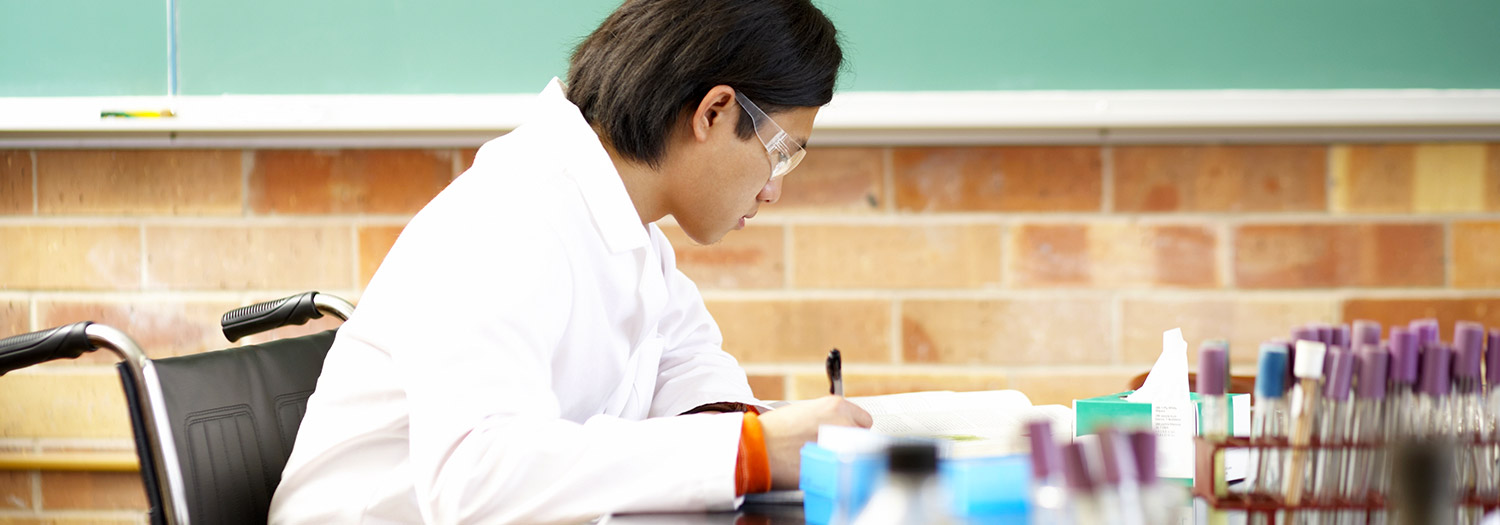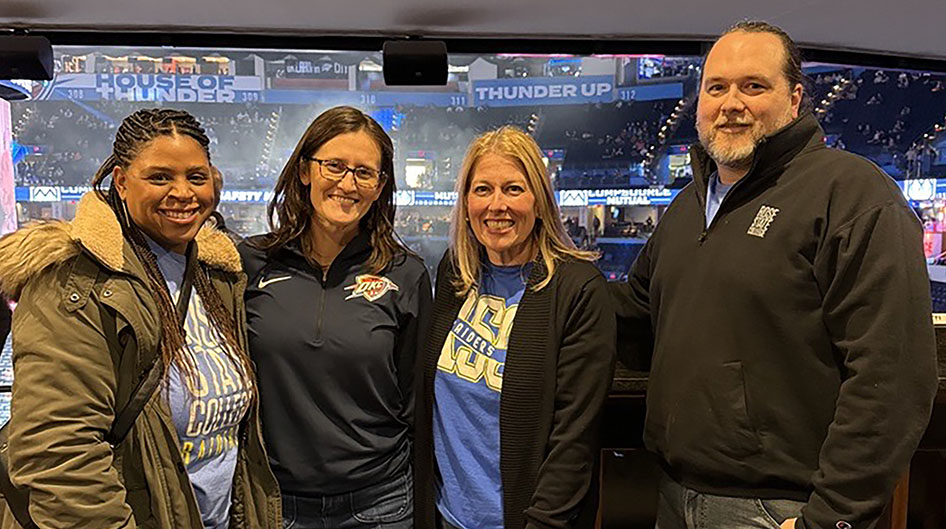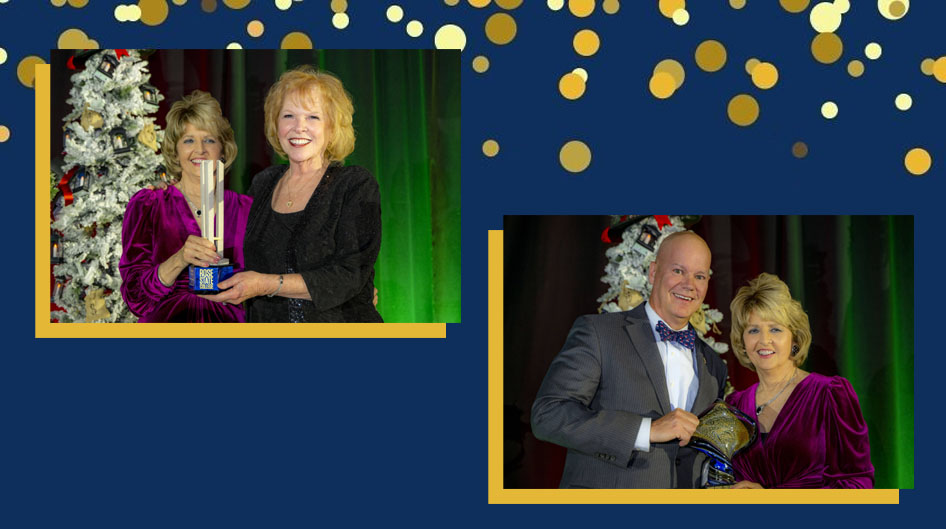Information for Faculty
Student Access Services (SAS) is charged with collecting appropriate disability-related documentation and identifying academic accommodations for eligible students with disabilities. Collaboration with faculty is often necessary, and important, in discussing what may be reasonable in a particular situation.
Syllabus Statement (example for consideration)
Accessibility and Accommodations: It is the College’s goal that learning experiences be as accessible as possible. If you anticipate or experience physical or academic barriers based on disability, please let me know immediately so that we can discuss options. You are also welcome to contact the disability service office to begin this conversation or to establish accommodations.
Students with disabilities who seek accommodations must make their request by contacting Student Access Services (formerly Disability Services) in Learning Resources Center (LRC), Room 106, or call 405.733.7373.
Students with disabilities are expected to meet the same standards, requirements, and expectations of the course. Accommodations allow for “equal access” and “equal opportunity”, and may be considered unreasonable if they:
- Fundamentally alter an essential element of the program; and/or
- Result in an undue administrative or financial burden.
Otherwise, accommodations are based on a standard of “reasonableness” – what a reasonable person would reasonably expect to be reasonable (legal comment).
While implementation of accommodations may vary, it is illegal to deny identified and reasonable accommodations.
Accommodations & the Classroom (PDF)
ACCESSIBILITY v. ACCOMMODATION
SAS works toward an inclusive, universally accessible community. Issues related to Accessible Instructional Materials (e.g., videos, pdfs, lectures), classroom access (e.g., building, room, seating), and communication (e.g., interpreter/CART) are addressed ongoing with a specific focus on identified student needs in order to create access. These efforts provide access, rather than accommodation, and are separate from the student accommodation letter. No accommodation letter is necessary to address these needs.
It is important to note the distinction between ACCESSIBILITY, which is done to remove known barriers, and ACCOMMODATION, which is a formal letter of notification.
Accommodations: To comply with federal law and policy with respect to students with documented disabilities, please be aware of the following:
- Accommodations are only to be provided to students registered with Student Accessibility Services (SAS) and from whom you have received a letter of accommodation.
- Accommodations for exams and other course performance evaluations should occur on the same day and in the same format as for all other students, unless an alternate format is required by the accommodation.
- It is faculty responsibility to schedule and provide the exam/test/quiz at an alternative time if the student may not be accommodated at the same time as all other students.
- Exams and all other evaluations of performance must be the same as what is provided to all others in the course (i.e. no harder nor in a different format, unless that format is required by the accommodation). Examinations given at alternate times are not to be considered make-up examinations.
- A dropped exam policy may only be applied to an accommodated exam if the student chooses that option.
- An accommodation requiring a notetaker, or other means of taking notes, must be allowed. This applies to students recording and/or using iPad/laptop for taking notes.
Attendance and flexibility with deadlines are accommodations intended to address when or how a student is able to meet the established work requirements.
The following must first be determined:
- what was missed
- if there is a way for the student to get/make-up what was missed
- whether it is an “essential element” of the course
- if the accommodation would be considered a “fundamental alteration” to the nature of the course
Students need to be able to demonstrate mastery of the course based on evaluation of performance as outlined in the assessment rubric. A good faith effort is expected to identify ways in which a student may make-up/complete missed work that is “essential”. An example is missing a lab. Can that lab be set-up again, done during another available lab time, done online or in a virtual environment or accomplished via a comparable ‘dry’ lab? What is feasible is determined by the instructor. Generally, labs, group work and highly interactive activities are considered “essential." If there is no way to accommodate these missed activities, no allowance for absence is required.
Students are expected to attend class. SAS emphasizes the importance of attendance and the potential impact of missing in-class information/ instruction/discussion, as well as impacting performance on exams/papers. Too many absences may prevent successful completion of the course even with accommodation, and in some cases the accommodation may be unreasonable or infeasible. If absence(s) occur due to the nature of the disability, the student is still responsible for the information and work missed. While the absence(s) themselves may have no negative impact on grading/evaluation, they may impact performance on exams and other assignments and thereby be reflected in the student’s grade.
In courses where attendance is “essential” to the nature of the teaching pedagogy and class dynamics, flexibility with absences may be considered unreasonable. This accommodation often necessitates a conversation between the instructor and SAS to discuss the “essential” threshold, as defined by legal decisions in OCR and court cases.
Extension of deadlines should be avoided. Students are informed of the precariousness of extensions and the rippling effect it may have. Ample advance notice (and ability to act) attempts to address this need. Oftentimes, information, direction, or instruction is missing which prevents the student from starting the work earlier.
Points to consider if an extension is deemed necessary:
- how it fits into the overall configuration of the course (stand-alone vs. basis for other work)
- whether information will be available that advantages the student
- delay in feedback and impact to student and/or class
- impact on group work or interaction with others
Deadlines may become an issue for a student, where it would be a non-issue otherwise, when multiple assignments coincide (e.g., papers, exams). Also, periods of exacerbation of a disability/condition may impact/ limit the student's time available to complete the expected work.
Recording lectures is a means of capturing information for subsequent individual academic use and review to accommodate a disability and facilitate learning. Faculty concerns about appropriate use should be discussed with the student, and may include drafting a “Use Agreement” outlining the scope and purpose of the recordings. (A sample Use Agreement is available from SAS - email your request to StudentAccessServices@rose.edu)
There are occasions where recording may be inappropriate, such as sharing of private or confidential information. In these cases, an alternative may need to be discussed with the student and/or SAS. Absent such occasions, the accommodation should be allowed even in light of a "no laptops or mobile device use" policy.
Contact Information
Student Access Services (formerly Disability Services)
Student Services Building (SSB), Room 107
6420 Southeast 15th Street
Midwest City, OK 73110
(405) 733-7407




